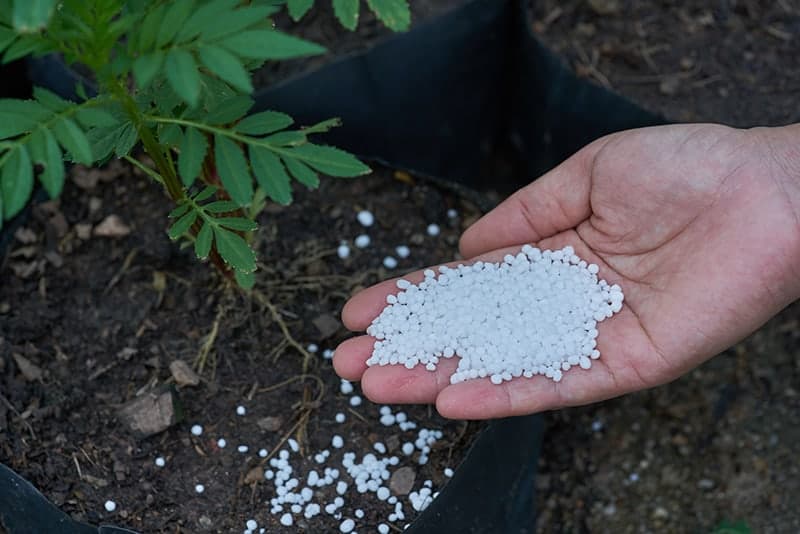Soil health is a critical factor in ensuring the success of agricultural endeavors. Farmers and gardeners worldwide strive to maintain soil fertility, structure, and nutrient availability to support robust plant growth. One key element that plays a vital role in soil health is calcium. While calcium is naturally present in the soil, deficiencies or imbalances can impede optimal plant growth. This is where liquid calcium fertilizer emerges, providing a valuable solution to improve soil health. This article will explore the role of liquid calcium fertilizer and its impact on soil health.
Importance Of Calcium In Soil Health
Calcium is an essential plant macronutrient, crucial in various physiological processes. It promotes strong cell walls, enhances root development, aids nutrient uptake, and regulates enzymatic activity. Additionally, calcium improves soil structure by promoting flocculation, which leads to better water infiltration, root penetration, and aeration. However, calcium availability can be influenced by soil ph, organic matter content, and nutrient imbalances, making it necessary to address deficiencies through effective fertilizer strategies.
Introducing Liquid Calcium Fertilizer
Liquid calcium fertilizer offers a convenient and efficient means of supplementing calcium in the soil. It is formulated to be easily absorbed by plants, rapidly responding to calcium deficiencies. Unlike traditional calcium sources, such as powdered limestone or gypsum, liquid calcium fertilizers quickly dissolve in water and can be easily applied through foliar sprays or irrigation systems. This allows for uniform distribution and targeted application, ensuring efficient calcium uptake by plants.
Improving Soil Structure
One of the key contributions of liquid calcium fertilizer to soil health is its ability to enhance soil structure. Promoting flocculation encourages the aggregation of soil particles into larger clumps or aggregates. This improves pore space, allowing for better water infiltration, root development, and nutrient movement within the soil profile. The enhanced soil structure also reduces compaction and erosion risks, fostering a favorable environment for beneficial soil organisms.
Mitigating Nutrient Imbalances
In addition to addressing calcium deficiencies, liquid calcium fertilizer can help alleviate nutrient imbalances in the soil. Calcium is crucial in maintaining proper nutrient ratios, especially in other cations like magnesium, potassium, and sodium. By providing an adequate supply of calcium, liquid calcium fertilizer helps maintain optimal nutrient balance, preventing antagonistic interactions that may hinder plant growth. This balanced nutrient environment supports healthy root development and overall plant vigor.
Enhancing Plant Health And Yield
The availability of calcium in the soil directly impacts plant health and yield potential. Insufficient calcium levels can lead to various disorders like blossom end rot in tomatoes, tip burn in lettuce, and bitter pit in apples. By ensuring an adequate supply of calcium, liquid calcium fertilizer helps prevent these physiological disorders, improving crop quality and marketability. Additionally, calcium-enriched plants are better equipped to withstand environmental stresses such as drought, heat, and disease, improving resilience and productivity.
Environmental Considerations
Liquid calcium fertilizers offer several environmental benefits. They are highly soluble and readily available to plants, reducing the risk of runoff and leaching compared to traditional calcium sources. This prevents the wastage of valuable resources and minimizes the potential for water pollution. Furthermore, by improving soil structure and nutrient availability, liquid calcium fertilizers contribute to sustainable agricultural practices by reducing the need for excessive synthetic inputs and promoting overall soil health.
Conclusion
The role of liquid calcium fertilizer in soil health is undeniable. Addressing calcium deficiencies, improving soil structure, mitigating nutrient imbalances, and enhancing plant health is crucial in optimizing agricultural productivity. The convenience and efficiency of liquid calcium fertilizers make them a valuable tool for farmers and gardeners seeking to improve soil health and maximize crop yields. Embracing sustainable fertilizer practices that incorporate liquid calcium fertilizers can contribute to the long-term viability of agriculture while preserving and enhancing our precious soil resources.

